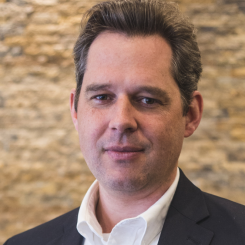Michael A. Mehling
Since 2000, the MIT Center for Energy and Environmental Policy Research (CEEPR) has partnered with the Energy Policy Research Group (EPRG) at the University of Cambridge in the United Kingdom to convene an annual European Energy Policy Conference at varying locations in Europe. On July 9 and 10, CEEPR and EPRG joined forces with Royal Dutch Shell plc to host the 15th instalment of this event in London, United Kingdom. Reflecting the disruptive trends affecting various areas of the energy sector, and acknowledging the importance of the upcoming international climate summit in Paris (COP21), the organizers titled the 2015 conference “Building a Sustainable Future Energy System: More Energy, Better Energy Management, Less CO2”. Over 100 participants from 16 countries gathered at the venue, the venerable Langham Hotel in the heart of London’s West End, to discuss the prospects and implications of a global energy transition in Europe and beyond. Across six substantive sessions, panelists drawn from academia, government, and the private sector commented on a variety of issues ranging from carbon markets and the evolving role of natural gas to energy market design and regulation. Presenters also provided an update on carbon capture and sequestration, discussed recent trends in low-carbon transportation, and discussed the geopolitical and security implications of evolving energy markets. Keynote addresses by Erik Bonino, Chairman of Shell UK, and Jeremy Bentham, Head of the Shell Scenarios team, rounded out a stimulating and forward-looking event. As always, presentation documents and other conference materials are available to CEEPR Associates through the password-protected section of the CEEPR website.



